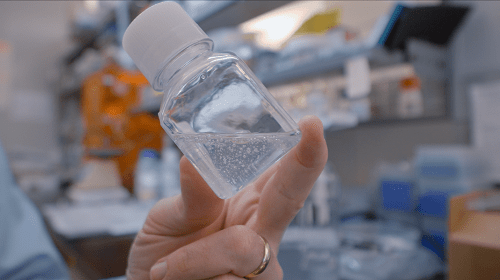
A team, including GE Research, the Broad Institute, DNA Script, MEDInstill, Molecular Assemblies, and the University of Washington, has been awarded a five-year, up to $41 million contract from the Defense Advanced Research Projects Agency (DARPA) to create a new, quicker vaccine production process.
The contract is being offered through DARPA’s new NOW program, short for Nucleic Acids On-Demand Worldwide. Meant to be rapidly scalable and deployable, it represents a radical envisioning of the vaccine process, able to get protection to people in need fast. With things like COVID-19 vaccines firmly in mind, it’s meant to add a mobile element capable of producing greater than 1,000 doses of ready-to-use vaccines where they are needed in mere days.
Typically, this sort of deployment would take weeks.
GE Research, the research and development arm of General Electric, was chosen for a project known as RUN FAST, short for Rapid Universal Nucleic Acids using Fieldable Automated Synthesis Technology. Led by Dr. John Nelson, this project’s take on the mobile platform idea focuses on creating automated systems for the biological production of medicines and therapies, complete with a new synthetic method for making DNA and RNA alike.
“We think the world really needs this kind of advance to be prepared for unexpected challenges like what we have seen recently with COVID-19,” Nelson said. “Having the ability to produce small batches of ready-to-use vaccines in under 3 days at the site of need would enable widespread deployment of doses at an unprecedented speed.”
Traditionally, DNA and RNA-based vaccine production required the use of bacterial cultures. These, in turn, required a variety of purification efforts to eliminate any impurities in the cultures. GE’s effort proposes to take synthetic DNA production and work out a streamlined, automated system that shaves off significant development time since no living cells will be involved — and thus none of the care and cleaning they require.




